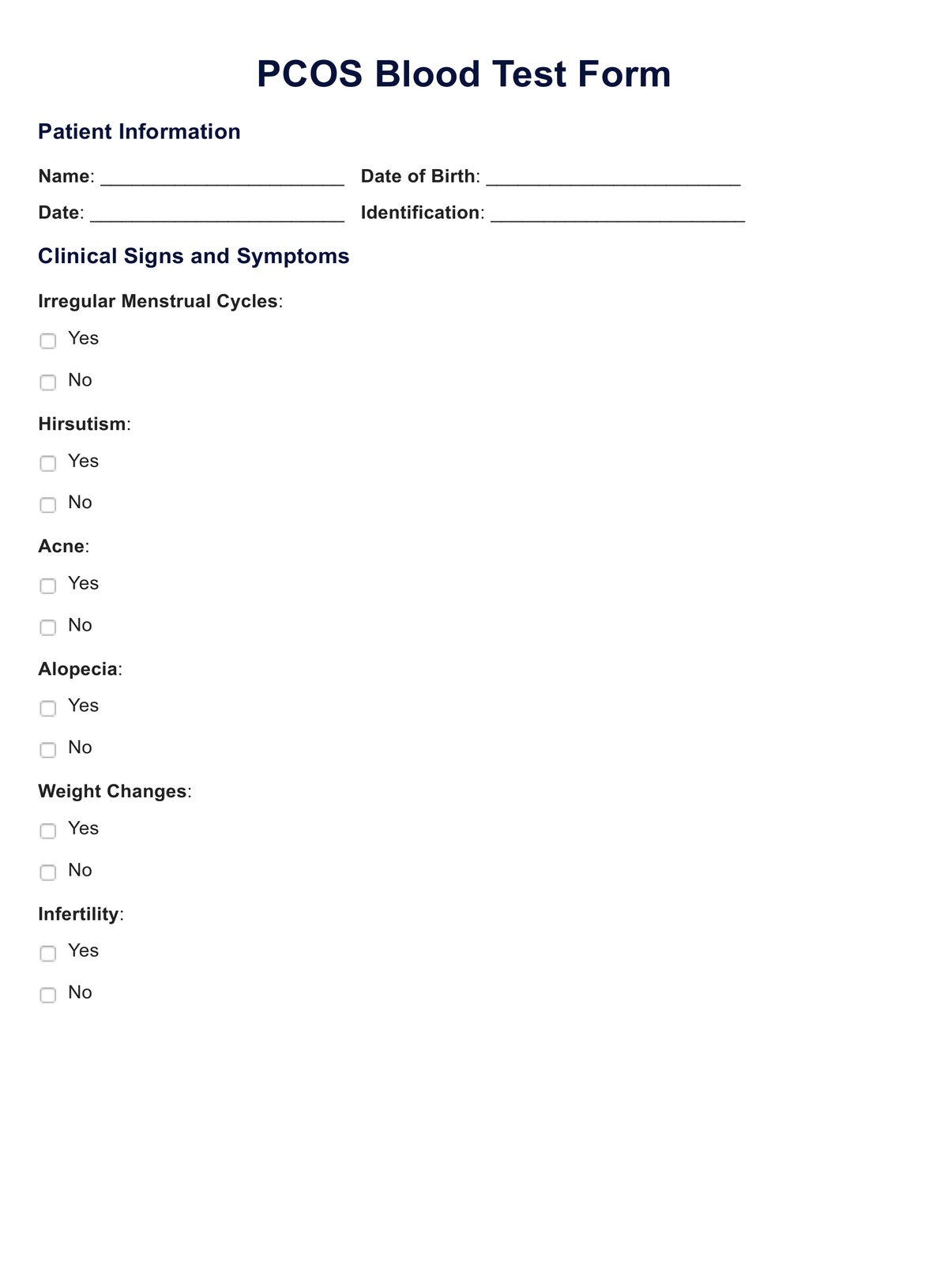In PCOS, male hormones (androgens) are often elevated. Blood tests measuring hormones like total testosterone can help diagnose PCOS. Normal androgen levels usually rule out PCOS, as higher-than-normal levels of these hormones characterize the condition.

PCOS Blood Test
Explore comprehensive blood tests for diagnosing Polycystic Ovary Syndrome (PCOS). Revise the essential tests to confirm PCOS and rule out other disorders.
PCOS Blood Test Template
Commonly asked questions
A healthcare provider assesses clinical signs of PCOS during a physical exam, such as excess body hair, acne, and body mass index (BMI). They may also check blood pressure, as high blood pressure can be associated with PCOS. A pelvic ultrasound might look for enlarged ovaries or fluid-filled sacs (cysts).
Yes, birth control pills are commonly prescribed in PCOS to regulate menstrual cycles and lower levels of male hormones. They can help manage symptoms like acne and hirsutism and contribute to the normalization of the female reproductive system.
EHR and practice management software
Get started for free
*No credit card required
Free
$0/usd
Unlimited clients
Telehealth
1GB of storage
Client portal text
Automated billing and online payments











